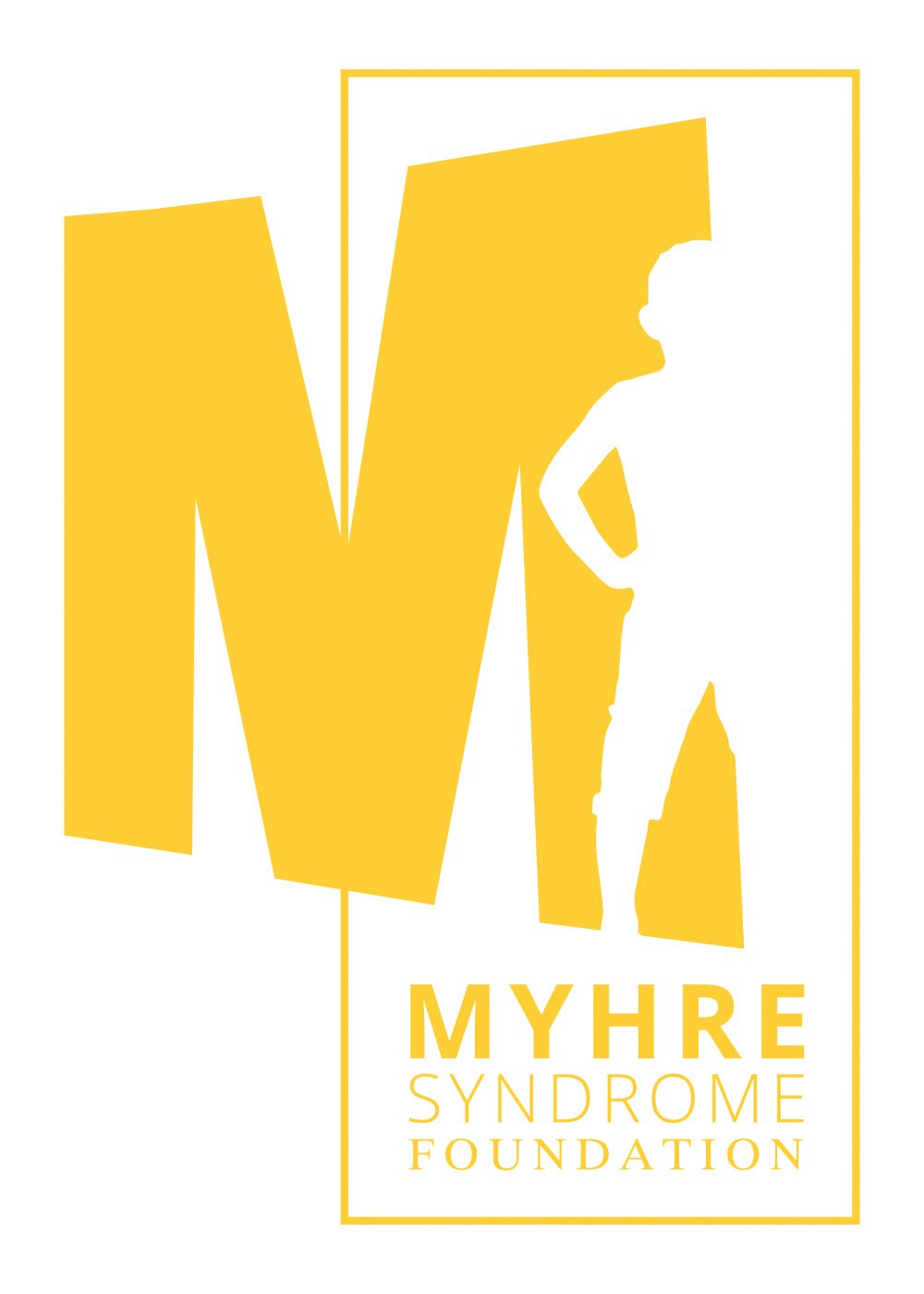Dr Angela Lin, co-director of the Myhre Syndrome Clinic at Massachusetts Hospital in Boston, provided a genetics refresher.
Is there a definition for Myhre syndrome? Yes.
As of 2023, Myhre syndrome is defined by a pathogenic variant in SMAD4 and clinical features (which can vary from mild to severe).
Currently, all people with Myhre syndrome have a “pathogenic/disease-causing variant” (also called “mutation”) in the gene called SMAD4
The SMAD4 mutation in Myhre syndrome works in a completely different way compared to the SMAD4 mutation found in HHT (Hereditary Hemorrhagic Telangiectasia), juvenile polyposis, and many cancers. This is an important difference and a person with Myhre syndrome will not get HHT as well.
Is genetic testing necessary to diagnose Myhre syndrome? Yes
DNA-based genetic testing is required to diagnose Myhre syndrome.
There are some people who have features which are “Myhre syndrome-like”, or similar to Myhre, but not classic. However, they do not have Myhre syndrome if they do not carry the SMAD4 mutation.
Please remember that this is different from people who do have a SMAD4 mutation and mild Myhre syndrome features. We are slowly learning that some variants are more likely to have mild features.
To summarize:
Myhre syndrome = SMAD4 gain-of-function (GOF) variant
SMAD4 GOF Variant = Myhre syndrome.
Can a person without a SMAD4 mutation resemble Myhre syndrome? Yes
But, the gene diagnosis is required to say, “Myhre syndrome”.
Some people may have tested “negative” in the past before the gene was discovered in 2012. Such people should be tested again. The testing is straightforward.
Or, a person may have a “variant of uncertain significance” (VUS) in another gene. This would not be Myhre syndrome.
Does it matter? Yes
If a person has Myhre syndrome, there is a lifetime of medical monitoring.
If a person has another disorder, the care could be different. Additional testing looking for genes other than SMAD4 should be performed.
I speak from experience of attending conferences for other disorders in which a person thought they had a syndrome. However, after re-evaluation and testing, the correct diagnosis was made.
If anyone needs help anywhere in the world, I can try to locate an appropriate geneticist. We cannot perform the testing for you.
Let’s review the SMAD4 gene (pronounced as “SMAD 4”) and the different SMAD4 variants.
What is SMAD4?
Please read this summary from the National Library of Science.
SMAD4 is a well-known gene. It is part of the TGFB signaling pathway.
SMAD4 in Myhre syndrome is different from the other disorders caused by SMAD4 mutations.
Myhre syndrome affects the GERMLINE (egg or sperm) which means all parts of the body.
A SMAD4 mutation also causes HHT and affects the GERMLINE and is completely different from Myhre syndrome.
Cancers affecting several internal organs are also caused by a SMAD4 mutation as SOMATIC mutations – which is completely different.
Cancer can be part of Myhre syndrome, but very rare.
All patients with Myhre syndrome have a SMAD4 mutation (pathogenic variant).
There are two variants:
Arg496Cys – means that at position 496, Arginine is changed to Cystine.
Isoleucine500Valine (or Meth, Threo) – means that at position 500, Isoleucine changes to Valine (or methionine or threonine or leucine)
The most common variant is Isoleucine500Valine
Next is Arginine496Cystine
Then Isoleucine500Threonine.
Super rare is Isoleucine500Methionine.
Ultra rare (two people) is Isoleucine500Leucine.

